Tips For Safely Introducing Nuts To Your Baby
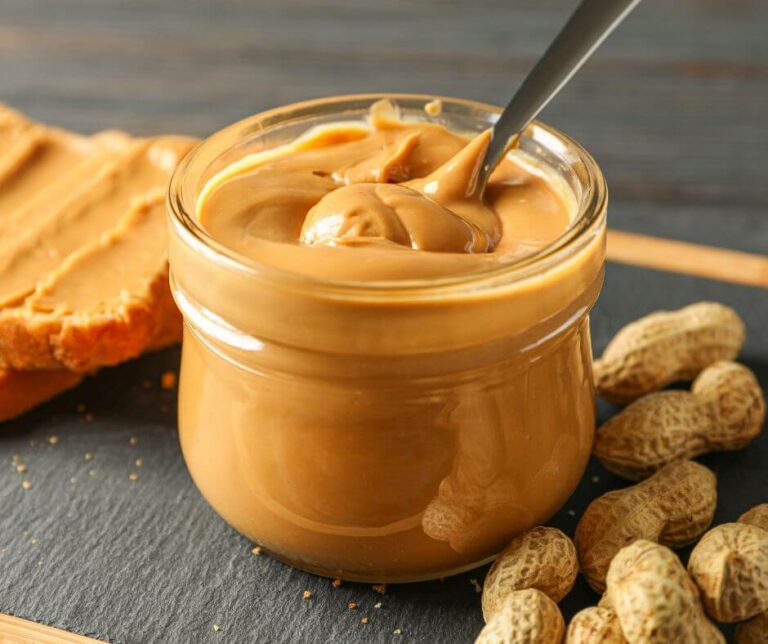
Tips for safely introducing nuts to your baby
Introducing your baby to new foods can be a daunting task. You want to make sure that whatever you’re giving them is safe and healthy.
When it comes to introducing nuts, there are a few things you should know – starting with the fact that it is recommended to introduce nuts to your baby between the age of 4-6 months, with the aim to have them all introduced by age 1 year.
In this article, we’ll discuss some tips for safely introducing nuts to your baby. We’ll cover when to start offering them, how much to give, what types of nuts are best and how to tell if your baby has an allergy.
By following these guidelines, you can ensure that your little one is getting all the nutrition they need in a safe and healthy way.
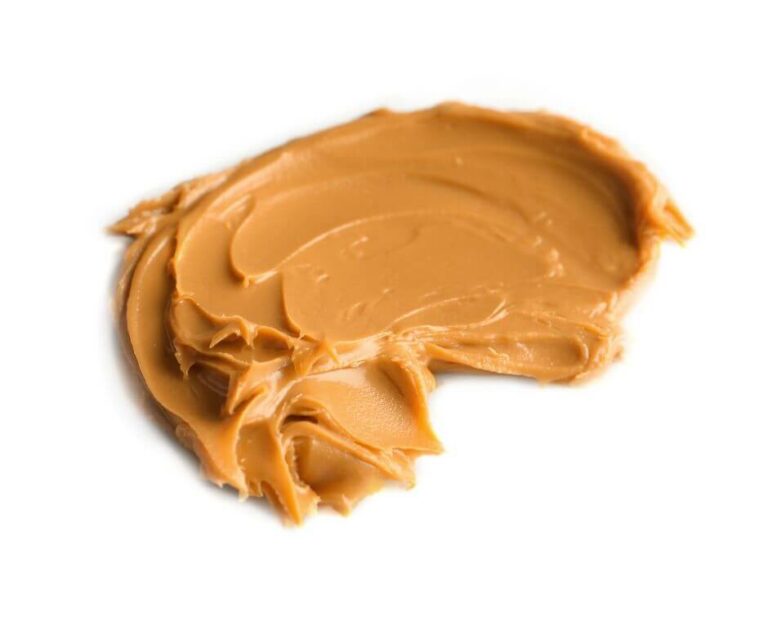
What are the benefits of introducing nuts to your baby?
The good news is that there are many benefits to introducing nuts to your baby, including the following:
- Nuts are a great source of nutrition for babies. They are packed with protein, healthy fats, vitamins, and minerals.
- Nuts can help to promote a healthy appetite in babies.
- Nuts can help to ease constipation in babies.
- Nuts can help to boost cognitive development in babies.
- Introducing nuts early on can help to prevent the development of allergies later in life.

When is the best time to introduce nuts to your baby?
Nuts are a great source of nutrients for babies, but they can also be a choking hazard.
When introducing nuts to your baby, it’s important to do so safely. The best time to introduce nuts to your baby is around 6 months old when they are starting to eat solid food.
You can start by giving them a small amount of nut butter or ground nuts mixed with other foods. If your baby does not have any allergies, you can gradually increase the amount of nuts they eat.
Be sure to watch them closely while they are eating, and make sure they are properly chewing their food before swallowing.
How to introduce nuts to your baby – step-by-step guide
If you have a family history of allergies, you can still introduce nuts to your baby early on. If you are worried, see a paediatric immunologist to put your mind at rest.
- Start with a small amount of nut butter or ground-up nut mixed into food.
- Increase the amount gradually over time.
- Once your baby is used to the taste, you can start giving them more regularly.
- Be sure to supervise while they’re eating and watch for any signs of an allergic reaction, such as swelling of the lips or difficulty breathing.
- Once you have successfully introduced them, be sure to continue them in the diet. This is very important.
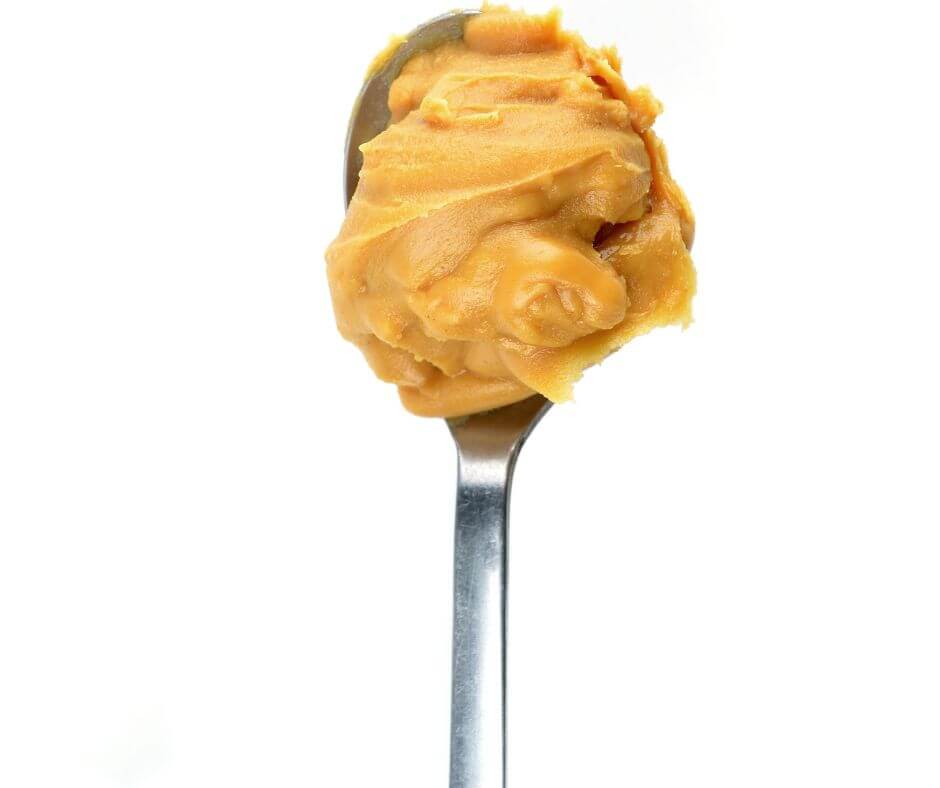
Which nuts are the best to introduce first?
When it comes to introducing nuts to your baby, there are a few things you should keep in mind. Start with a small amount of nut butter or ground nuts and work your way up to larger pieces.
There isn’t a specific nut that is best to try first but here are some suggestions.
Some parents find that it is easiest to introduce unsalted nuts as they tend to be blander than other varieties. almonds, cashews, and pistachios are all good options to start with.
You can use almond meal, or a paste called ABC paste. This is almond, brazil and cashew butter. You can also try mixing nut meal or paste into other foods that your baby already enjoys, like oatmeal or yoghurt. Just be sure to watch for any signs of an allergic reaction and take things slowly at first.
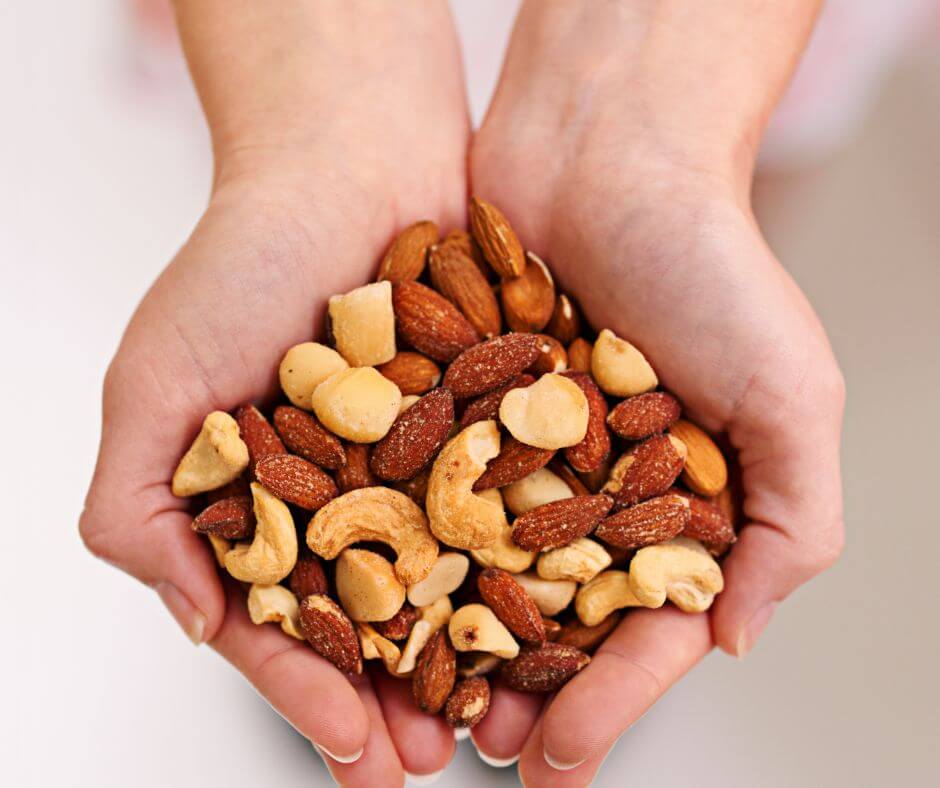
Signs that your baby may be allergic to nuts
If your baby has a history of allergies, you should be extra cautious when introducing nuts into their diet, and seek the advise of your paediatric immunologist.
Here are some signs to look out for that may indicate an allergy:
Mild to moderate symptoms of an allergic reaction:
- Hives or welts
- Swelling of lips, face or eyes
- Abdominal pain or vomiting
- Tingling mouth
Severe symptoms of an allergic reaction:
- Difficult or noisy breathing
- Swelling or tightness in the throat
- Swelling of the tongue
- Pale and floppy (young children)
- Dizziness or collapse
- Difficulty talking or hoarse voice/cry
- Wheezing or persistent cough
If you notice any of these signs of a severe allergic reaction, it’s important to stop giving your baby nuts and call an ambulance immediately
Should I give my child whole nuts?
When it comes to deciding whether or not to give your child whole nuts, there is no easy answer. On the one hand, whole nuts are a choking hazard for young children. On the other hand, they are a good source of nutrition and can help with the development of fine motor skills. Ultimately, the decision should be made on a case-by-case basis.
I would not give any child whole nuts under the age of 4 years. Even then, I would only give small nuts like pistachios. They can have fun peeling them from the shells. This also makes sure that they eat them slowly and one by one.
Only give them a small handful at a time. Make sure they are seated in an upright position when eating them. And supervise them closely to make sure they don’t choke on any pieces.

What to do if baby smears nut butter on their skin
If your baby smears nut butter on their skin, this can cause a contact reaction and create worry for a parent.
If your child smears nut butter on their skin, it is best to wipe it off as soon as you can to avoid this. They could also rub the nut butter in their eye and cause swelling if they do have a mild sensitivity.
Can I use nut oil on my baby’s skin?
We discourage using food products on a babies skin, as this can cause a child to become allergic to the food by sensitising them through their skin and into their blood stream.
If you really need to, you can use nut oil on your baby’s skin. Just make sure to do a patch test first to check for any allergic reactions.
Nut oil usually has very little protein in it. It is the protein that causes the allergy, so nut oil is always better than nut cream.
Olive oil is fine to use on a baby or child.
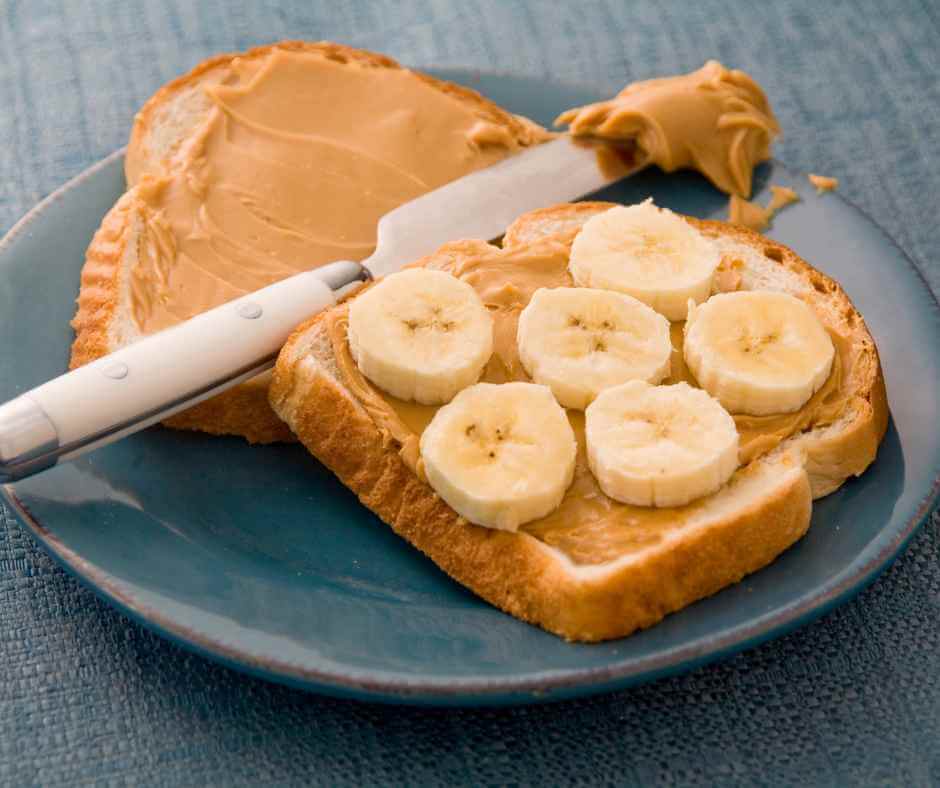
How to prepare nuts for your baby
If you’re thinking about introducing nuts to your baby, there are a few things you need to do first. Here’s a step-by-step guide on how to prepare nuts for your baby:
- Choose the right type of nut. Almonds, cashews, and pistachios are all good choices for babies. Avoid giving them whole nuts, as they can be a choking hazard.
- Grind the nuts into a powder using a food processor or coffee grinder. This will make them easier for your baby to digest.
- Mix the nut powder with breast milk, formula, yoghurt or water to create a smooth consistency. Start with just a small amount of nut powder and gradually increase the amount over time.
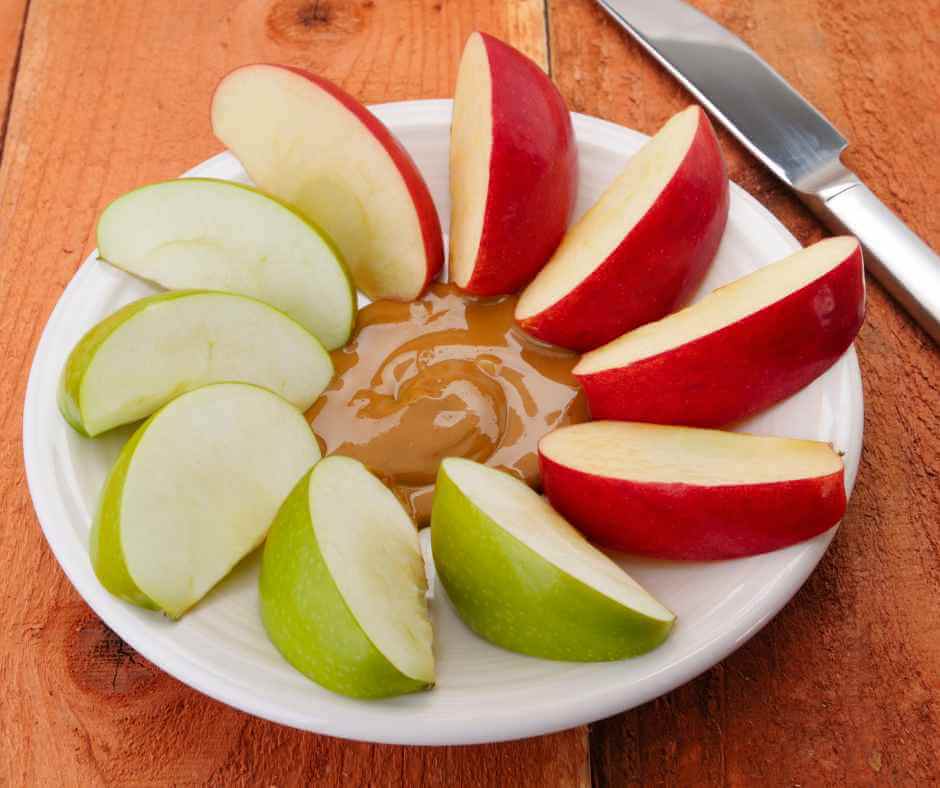
- Give your baby the mixture once or twice per day, depending on their tolerance level. If they seem to be reacting well, you can increase the frequency as needed.
- Once you have introduced the nuts, one at a time if possible (except the ABC paste) you can then grind up a mix nut bag and put it in the fridge to be sprinkled on their food once or twice a week.
What are the benefits of eating nuts?
There are many benefits to eating nuts, including reducing the risk of heart disease, cancer, and stroke later in life.
They are also a good source of protein, fibre, vitamins, and minerals. Additionally, nuts are low in saturated fat and high in healthy unsaturated fats.
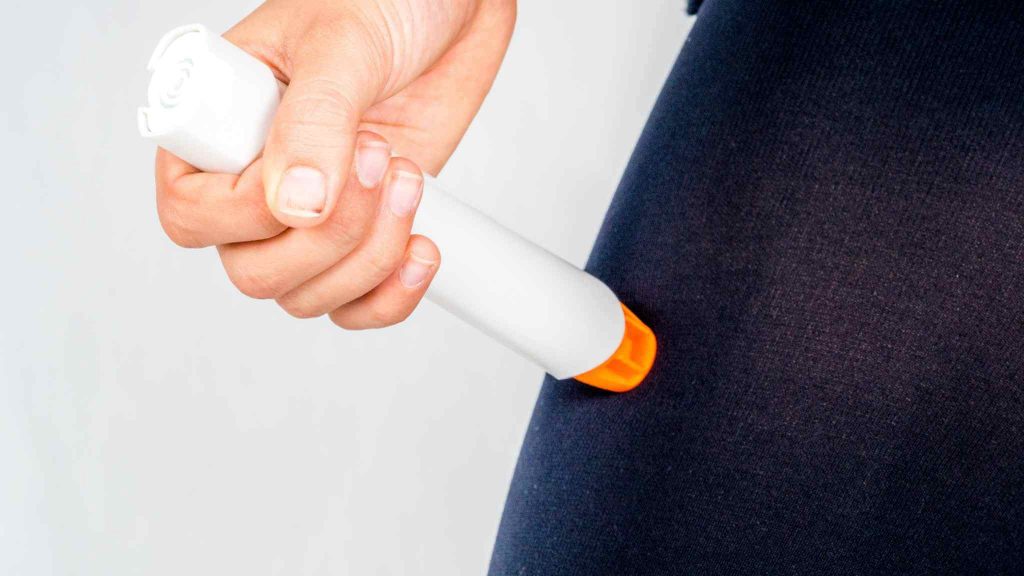
Tips for avoiding allergic reactions
If you have a family history of allergies, or if your child has any other allergies, talk to your paediatric immunologist before introducing more nuts to their diet.
There are a few things you can do to reduce the risk of an allergic reaction when introducing nuts to your baby:
- Start with a small amount, gradually increasing over time.
- Give them mashed or ground nuts rather than whole nuts.
- Avoid giving them honey until they’re at least 1 year old. Honey can contain spores that can cause botulism in young babies.
- Watch for signs of an allergic reaction, such as swelling of the lips or face, difficulty breathing, itching, or hives. If you see any of these signs, stop giving them nuts and call emergency services immediately.
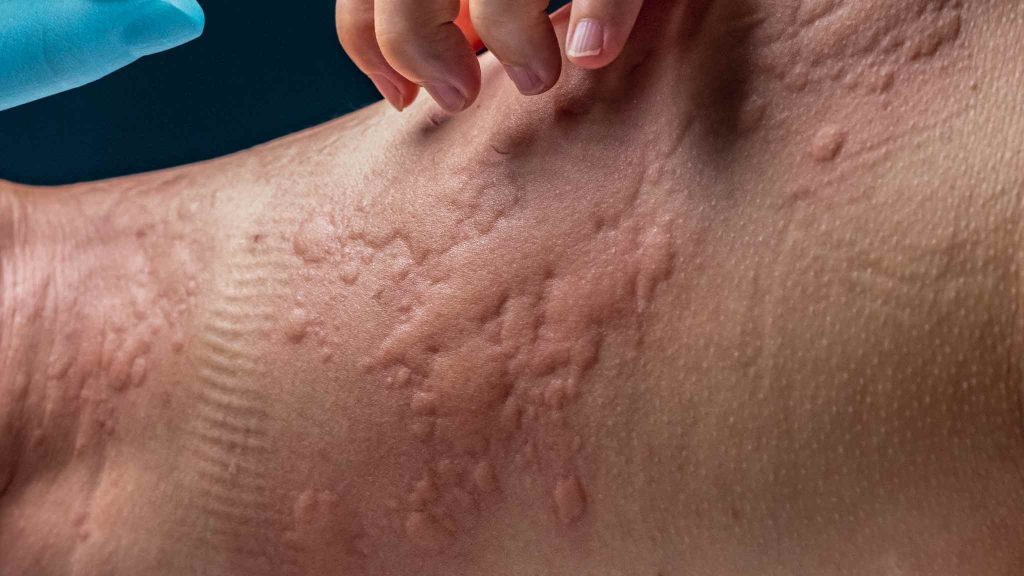
How do I know if my baby is at high risk for an allergic reaction?
If your baby has a family history of allergies, they may be at an increased risk for developing an allergy to nuts.
Other risk factors include if your baby has eczema or other food allergies.
If you are concerned that your baby may be at risk for an allergic reaction to nuts, talk to a pediatric immunologist before introducing them to nuts.
What if there is a family history of nut allergy?
If you have a family history of nut allergies, it is important to talk to your doctor before introducing nuts to your baby. You may need to take extra precautions, such as starting with a very small amount of nut or doing a skin prick test first.
However it is more important for high risk children to introduce the nuts as early as possible.
You can use our guide to learn how to introduce nuts to your child and how to recognise an allergic reaction.
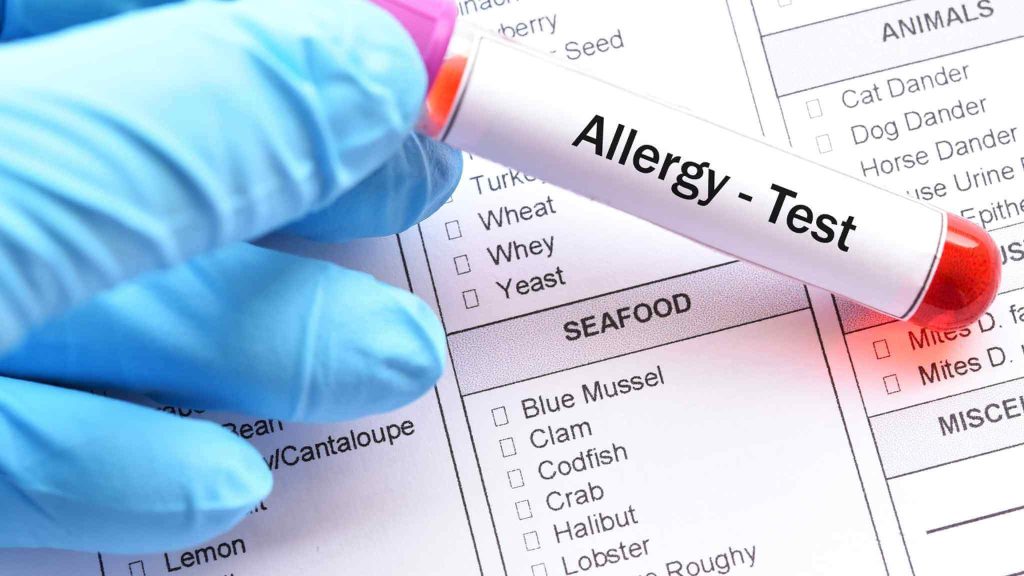
My baby has eczema, are they more at risk of reacting?
If your baby has eczema, they may be more at risk for having an allergic reaction to nuts.
The best way to introduce nuts to your baby is to do so slowly. Here are some tips for safely introducing nuts to your baby:
- Make sure you keep the nuts off of your childs skin where possible. If they smear it on their face or body, wipe off with a gentle cloth straight away.
- Start with a small amount of nut butter or ground nuts mixed into another food, such as oatmeal or mashed potatoes.
- Increase the amount of nut butter or ground nuts gradually over time.
- Make sure the nuts are finely ground so that they’re not a choking hazard.
- Monitor your baby closely for any signs of an allergic reaction, such as swelling, redness, hives, or difficulty breathing. If you see any of these signs, stop giving your baby nuts and call emergency services immediately.
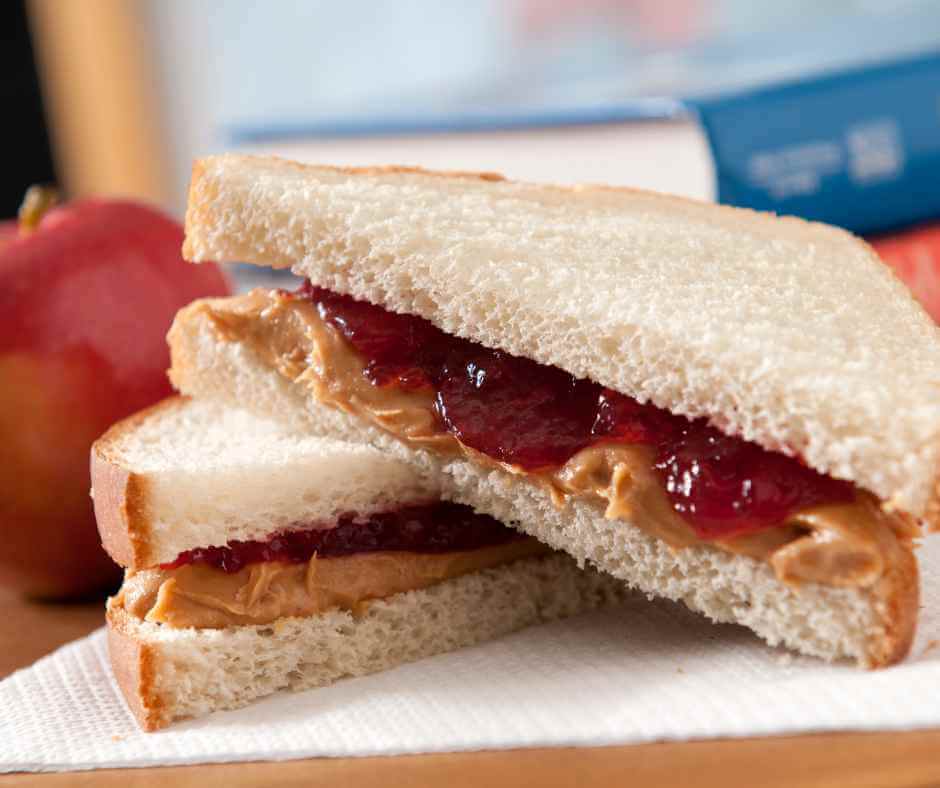
My child has asthma, are they more at risk of reacting?
If your child has asthma, they may be more at risk of reacting to common allergy foods such as nuts. The proteins in nuts can trigger an an allergic reaction which can show the same symptoms as an asthma attack, so it is important to talk to your child’s doctor before introducing them to nuts.
You should not avoid giving your child nuts if they have a history of allergies or eczema, but it may be worth speaking to a paediatric immunologist if you want extra guidance.
Introducing nuts to your baby is a big milestone and with the right knowledge, it can be done safely.
Remember that introducing solid foods should not occur before 4-6 months of age, and when you do introduce nuts be sure to watch for any signs of allergies. We hope this article has provided you with some helpful tips on safely adding peanuts into your child’s diet while keeping their health in mind.
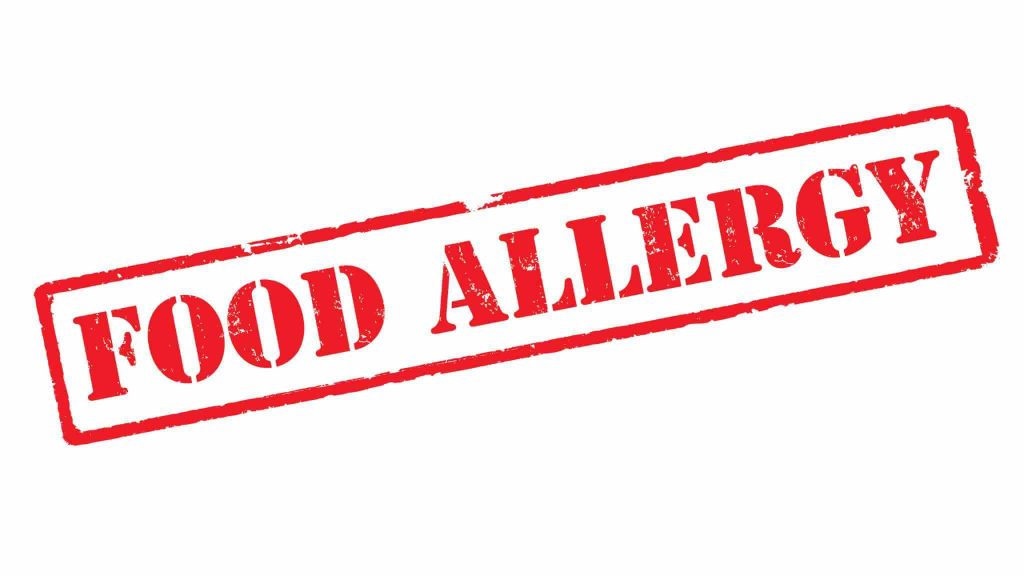
Want more? We’ve got you covered…
Our Baby First Aid Courses
Our baby first aid courses are available in person in your home and online. We run classes in your home with groups of 2, 4 or up to 10 in Sydney & Melbourne and you can book in 3 easy steps!
- Pick your class
- Follow the prompts to purchase
- We will contact you within 24 hours to lock in your date of choice
Our First Aid Certificate Courses
We run most of the popular first aid courses Australia wide. HLTAID011 Provide First Aid, HLTAID009 Provide CPR, HLTAID012 Provide First Aid in an Education & Care Setting, RAMOAP (anaphylaxis), Mental Health first aid and CPR/LVR to name a few.
Book your public spot online or contact us if you have a group of 5+ people for onsite training.
Here are some other resources you may enjoy!
FREE GUIDE: Your Virtual Baby First Aid Kit
FREE GUIDE: Introducing Common Allergy Foods & Allergic Reactions
FREE Workplace Emergency Preparedness Plan: Grab this at the bottom of every page!
Follow for baby & child first aid and allergy info and tips on Instagram & TikTok, all @thenestcpr
